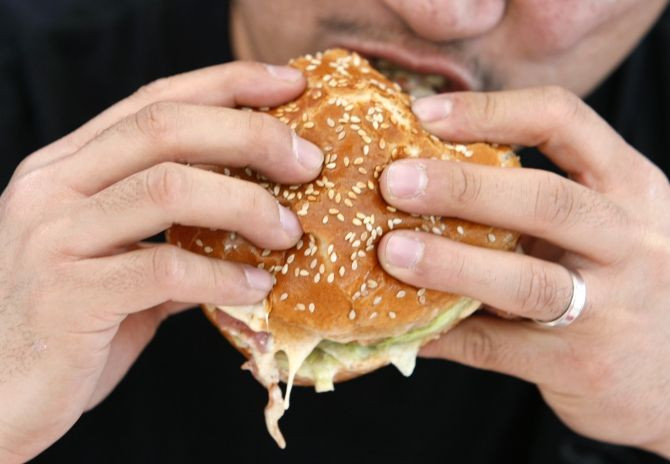Fatty Foods Make Your Brain Lazy, Influence Sense of Taste

A new study has shown that fat in food can reduce activity in some areas of the brain. Researchers hope these results can help in producing foods that are tasty, full of flavor and healthy.
For the study, researchers hooked up participants' brains to an MRI scanner. All participants were in their 20's and they were asked to taste four fruit emulsions that were similar in all aspects like sweetness, consistency and flavor but differed in their fat content. One had no fat while the other three had fat with different flavor release properties.
Researchers found that areas in the brain responsible for perception of flavor- somatosensory cortices and the anterior, mid & posterior insula- showed an increase in activity when the participants tasted non-fatty emulsions compared to when they tasted emulsions that had fat in them.
The researchers also found that non-fatty emulsion did not result in the activation of brain areas associated with reward function.
"This is the first brain study to assess the effect of fat on the processing of flavor perception and it raises questions as to why fat emulsions suppress the cortical response in brain areas linked to the processing of flavor and reward. It also remains to be determined what the implications of this suppressive effect are on feelings of hunger, satiety and reward," said Dr. Joanne Hort, Associate Professor in Sensory Science at The University of Nottingham, in a statement.
Food companies always try to find out what their target consumers might like to eat which helps them come with better food products that increase sales.
"There is more to people's enjoyment of food than the product's flavor, like its mouth feel, its texture and whether it satisfies hunger, so this is a very important building block for us to better understand how to innovate and manufacture healthier food products which people want to buy," added Johanneke Busch, Unilever food scientist based at the company’s Research & Development laboratories in Vlaardingen, Netherlands, in a statement.
Fatty foods affect the way people think. One study, reported by Medical Daily, had said that fatty foods are addictive like drugs.
The study is published in the journal Chemosensory Perception.
Published by Medicaldaily.com



























